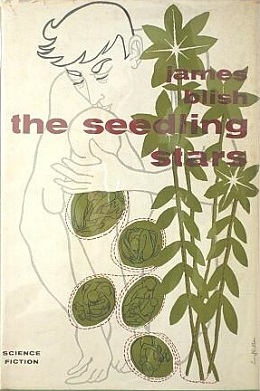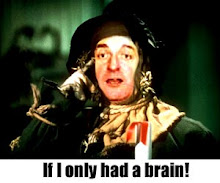 From wikipedia.org
From wikipedia.orgI've started to dread the credit "Written by Rod Serling" when watching The Twilight Zone. Don't get me wrong, I've sang his praises in the past and still do; he was a superb craftsman. Too often though he was just too damn matter of fact. Also he sometimes allows his prose to run away with him (a little like Ray Bradbury). Then there are those similar themes surfacing again and again (the little man with a chance of redemption, the Nazi getting his come-uppance, the nostalgic yearning for the past). I watched his later series, 'Night Gallery' recently (and more on that later), but even there the episode that got Emmy-nominated, Serling's "
They're Tearing Down Tim Riley's Bar" is a very close reworking of Serling's earlier Twilight Zone episode, '
The Trouble with Templeton'. It's also conspicuously out of kilter with the refreshing darkness of the rest of the series, being hopelessly maudlin (as usual, I'm probably in the minority on this one). Serling at his worst has his characters declaim 'seriously' in sentimental yarns lacking bite. This is the Twilight Zone, Rod, take some drugs, get drunk, have an orgasm, but get out of your dogmatic mind, for goodness sake!
Anyhow! Series Three seems to be a monumental slog by him, every episode signed 'Written by Rod Serling' (it is a prodigious feat of creativity, it must be admitted), but thankfully tonight there was one "Based on a story by Manly Wade Wellman: '
Still Valley'. Not by any stretch a masterpiece, but I recognised it as a story I'd read years ago. Set in the American Civil War, it was about a sorcerer in a Southern States town threatening to overthrow the Union army through witchcraft. The story was better than Serling's adaptation, but it still boosted me no end to see it onscreen. There's a lot in the back catalogues, folks.
Yes, the back catalogue. Once upon a time I wrote a tv series using such tales. Naturally it was never produced, but it did get me noticed by an American couple who ran a small production company. I was 'Shakespeare', they 'loved me', 'Come in and see us!' I did. They didn't want to produce my series. Instead they wanted me to write their script based on a treatment they supplied. It was wonderfully tacky stuff about blind Templar monks coming back from the dead, though there was little to the treatment and what there was was probably ripped off from
Amando de Ossorio's BLIND DEAD series of zombie movies about the same subject. Nevertheless I agreed to tackle it.
Asking about a fee though changed the atmosphere. Warmth turned to chill. Between bouts of writing I consulted friends, checked with the Writer's Museum, Filmbase, etc., and the advice was the same; do nothing for nothing! Even if it's a small nominal sum, any payment would show their commitment to me. Otherwise they could have several writers working on the same thing and in the end they could choose whatever version they liked with no monetary loss. I had to have it out with them, and have it out with them I did. I was accused of not trusting them. Well, maybe, but they held all the cards and I was an out-of-work wannabe scriptwriter. I asked for a very small figure, maybe one hundred euros. After all I had done a lot of work at that point (little did they know I actually had a first draft written). No! I was a viper! I shamed them! Down the stairs! I was evicted from the office and that, my friends, was the end of that.
A shame though. I liked that script, if I do say so myself (nice scene in a library; sex scene with a seal), but as they owned the treatment, I don't own the rights. A salutary lesson in scriptwriting taught and learnt in a classroom we fondly call The Twilight Zone.
Labels: Fantasy, Horror, Rod Serling, Science Fiction, television, The Twilight Zone
 Richard Widmark - from wikipedia.org
Richard Widmark - from wikipedia.org From wikipedia.org
From wikipedia.org From wikipedia.org
From wikipedia.org Image from wikipedia.org
Image from wikipedia.org

